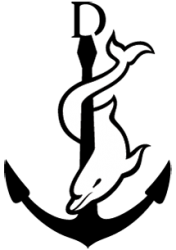Part 1: Beginnings
Toni Morrison was born Chloe Ardelia Wofford on February 18, 1931 in Lorain, Ohio. Raised among a family of storytellers, Morrison showed an interest in a range of creative expressions from an early age. In high school she worked as an editor on her school’s newspaper and as an undergraduate at Howard University she read classics, joined a theater group, the Howard Players, and was a member of the Modern Dance Club. While pursuing a masters degree in English at Cornell University, she studied William Faulkner and Virginia Woolf and wrote her first dated short story. Two years later, as a faculty member at Howard, she joined a writers group and sketched out what would become The Bluest Eye.
“Beginnings” gathers items from the years leading up to the 1970 publication of The Bluest Eye as Morrison explored different genres of storytelling and worked to develop her craft. Against this backdrop of her early life’s archive of performance, editorial work, revision, and writing, we see how The Bluest Eye and Toni Morrison as an authorial presence emerged from a wide and sweeping creative life.

Toni Morrison as Associate Editor of The Lorain High School newspaper, The Hi-Standard
The Scimitar, 1949
Princeton University Library Special Collections, General Manuscripts Miscellaneous Collection, Gift of Kathy A. Rogers

Toni Morrison and Edward Jenkins in a Howard Players Production of Richard III
1953
Unknown Photographer
Courtesy of University Archives Division, Moorland-Spingarn Research Center, Howard University.

College Reading Skills
1966
Lettie J. Austin in collaboration with Alice W. Grant, Chloe A. Morrison, Joan B. Murrell, Eleanor W. Traylor
Courtesy of Rene Boatman
First and last pages of the short story “Gia”
undated
Princeton University Library Special Collections

Letter from Toni Morrison to Alan Rinzler
March 8, 1966
Princeton University Library Special Collections
Throughout the mid-1960s, Morrison spent several years seeking editorial advice on the manuscript for what would become The Bluest Eye. In this early letter to Alan Rinzler at Macmillian, Morrison describes her plan for transforming a short story into what “promises to be a novel.” The letter outlines a “seven part story” that is about “what happens when the thing we longed for – The Big Secret Miracle, that, if it happens, will make everything all right – does happen.”
Letter from Toni Morrison to Ellen Roberts
May 4, 1966
Princeton University Library Special Collections
In May 1966, Ellen Roberts, an editor at Doubleday, received a series of Morrison’s short stories, which were well received. Encouraged by the positive review, Morrison sent her a full draft of The Bluest Eye and wondered if it was best suited as a short story. In this letter Morrison also alludes to an additional novel “of greater scope” that she is also working on.
Letter from Ellen Roberts to Toni Morrison
July 5, 1966
Princeton University Library Special Collections
In this editorial feedback, Roberts cautions against further developing The Bluest Eye as a novel and instead encourages her to continue working on it as a short story. Roberts was especially concerned about the “switching of forms” which she found more “jarring than emotionally effective.” Evidently undeterred by Roberts’ feedback, Morrison continued to revise and rework the manuscript as a novel.

Letter from Toni Morrison to Alan Rinzler
undated
Princeton University Library Special Collections
By 1968, Morrison was close to completing a final draft of The Bluest Eye, although she was still working to “reshape” some of its elements. In these later editorial exchanges with Rinzler, Morrison explains her decision to include the primer story “for coherence” and outlines which sections were complete and which were still in process. Rinzler responded enthusiastically, remarking that it was “looking more and more like a novel and a good one.”

Letter from Alan Rinzler to Toni Morrison
October 14, 1968
Princeton University Library Special Collections

Outlines for The Bluest Eye
undated
Princeton University Library Special Collections
These handwritten and typed outlines show Morrison’s ongoing revision process for The Bluest Eye. Across the versions, Morrison experiments with narrative perspective, textual elements, and the work’s organizing structure.

The Bluest Eye
1970
Princeton University Library Special Collections
The first edition hardcover of The Bluest Eye, published by Holt, Rinehart & Winston in 1970.
Toni Morrison Author Photo
1970
Bert Andrews
Princeton University Library Special Collections
Morrison’s first professional author headshot; this photograph also served as the entire back cover for the first edition of The Bluest Eye.
Lorain Nat’l Association of Negro Business
1975
Princeton University Library Special Collections
This 1975 poster appears at a transitional moment in Morrison’s career, where she would have both been recognized as Toni Morrison but still remembered as Chloe Wofford.






